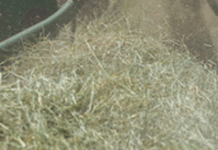Headlines
KU Theatre & Dance returns with plans for in-person performances
LAWRENCE — The Department of Theatre & Dance at the University of Kansas will offer escapism, comedy, music, dance and poignant drama in its 2021-2022 season, with plans for live, in-person performances of works such as “Measure for Measure,” “H.M.S. Pinafore” and the University Dance Concert series. The season will open Oct. 1 with “Airness,” a comedy exploring themes of individualism and authenticity set during an L.A. air guitar contest.
Proposed law changes show less financial transparency may be good in some cases, professor writes
LAWRENCE — Since the 1970s, mutual funds, hedge funds and other institutional investors have been required to file quarterly reports identifying the companies they have invested in and how much stock they hold in each one. Last summer, when the Securities and Exchange Commission proposed dramatically curtailing this disclosure program, voices from across the financial spectrum decried the proposal as an assault on market transparency. A University of Kansas professor has written a new study that comprehensively tracks, for the first time, just what those reports actually do and finds that, in some cases, less transparency might be better.
Full stories below.
————————————————————————
Contact: Lisa Coble-Krings, Department of Theatre & Dance, 785-864-5685, lcoble@ku.edu, @KUTheatre, @KUDanceDept
KU Theatre & Dance returns with plans for in-person performances
LAWRENCE — The Department of Theatre & Dance at the University of Kansas will offer escapism, comedy, music, dance and poignant drama in its 2021-2022 season.
The department’s production divisions are regrouping after an all-digital season last year, and this season is planned to be live and in-person. Audiences can expect spirited movement, diverse perspectives and appreciation for the written word in seven professionally produced theatre and dance works as well as one student-produced festival of short works. All rehearsals and performances of the University Theatre and Dance Company will follow industry standards as well as state, local and KU guidance regarding COVID-19 safety.
“We are excited to get to work,” said Henry Bial, professor and chair of the department. “There’s nothing like a year of quarantine to make you think hard about your priorities, and for us that’s meant doubling down on our commitment to telling stories that celebrate diversity of all kinds and offer a hopeful vision for the future. We aren’t quite where we hoped we would be with the pandemic, and we may have to make some adjustments along the way, but we need to perform, we want to perform for our community, and we’re going about it as safely as we can. I know our students, staff and faculty will rise to the challenge.”
This season features a range of projects led by faculty and graduate students, in addition to guest directors and choreographers, which will enrich the art and entertainment scene at the university. The introduction of a student-produced short works festival, the Jayhawk Performance Lab, will offer fresh perspectives and give the student audience stories that reflect a contemporary perspective. In the spring, Gabrielle Lamb, a 2020 Guggenheim Fellow and nationally commissioned choreographer, will take part in a two-week residency as the department’s choreographic fellow. Her work will headline the University Dance Company Spring Concert. A co-production with the KU School of Music and KU Symphony Orchestra of “H.M.S. Pinafore” serves as the season finale.
The 2021-22 season:
Oct. 1-7. “Airness,” by Chelsea Marcantel, directed by Jonah Greene.
Classic tunes from the ’80s and ’90s fill the air of dingy bar after dingy bar culminating on a glamorous L.A. stage where everyone — well, almost everyone — pulls for the dark horse contestant in an air guitar competition. This comedy focuses on individualism as well as the challenge of fitting in as a newbie in a group that exudes coolness. Through the art of air guitar, characters discover their authentic selves in big hair, studded wristbands and ripped T-shirts. “Airness” promises rivalry, glorious ridiculousness and genuine joy. It’s a lifestyle for the competitors and great escapism for the audience.
Oct. 22-31. “Head Over Heels,” songs by The Go-Go’s, conceived and original book by Jeff Whitty, adapted by James Magruder, based on “The Arcadia” by Sir Philip Sidney, guest directed and choreographed by Nakeisha Daniel.
Peril is coming to the kingdom of Arcadia. At risk of losing its beat, a symbol of prosperity generations in the making, the royal family takes on a lively journey to save their kingdom. Together they discover the answer lies in love, acceptance and dancing to the rhythm of one’s own heart. Set to the fabulous music of the 1980s, all-female rock band The Go-Go’s, this progressive love story will have audiences laughing and dancing in their seats.
Nov. 19-21. University Dance Company Fall Concert, choreography by Ashley Brittingham, Tristian Griffin, Maya Tillman-Rayton and Ashley Ebner, guest alumna.
The University Dance Company presents its semiannual repertoire concert, “Bodies of Text,” featuring choreography by KU faculty including the newest member of the Department of Theatre & Dance, Tristian Griffin, assistant professor of the practice. Ballet, modern/contemporary and hip-hop works all explore the fascinating, fun and complex ways that bodies and texts align, collide and work together.
Dec. 3-9. “The Devils Between Us,” by Sharifa Yasmin, guest directed by Cara Hinh.
For Latifa, a trans woman who came of age in the American South, a return to her childhood home means revisiting her roots, her Muslim religion and a shared trauma that tore apart teenage lovers. When Latifa comes sputtering into George’s auto shop, the surprising reunion leaves them conflicted and yearning for closure. Her return presents an opportunity to close a chapter in her life with the burial of her father and to push an old friend to explore his values. In turn, George shares an unlikely way he always stayed part of Latifa’s life and begins his journey to self-acceptance.
Feb. 25-March 6, 2022. “Measure for Measure,” by William Shakespeare, guest directed by Gabriel Vega Weissman.
From power brokers to delightful comedic characters, this Shakespearean “problem play” explores themes around love, hypocrisy, merciful justice and righteousness. It challenges the audience through silence and sex, chuckles and tricks. A rich and nuanced cast of characters reacts to a governing change together, while one individual’s life hangs in the balance. “Measure for Measure” was written during the same era as many of Shakespeare’s great tragedies, and while still classified as a comedy, its mood reflects that time. The play’s exploration of morality, government and the ever-evolving fabric of society has secured its place as one of Shakespeare’s timeless titles.
March 25-27, 2022. University Dance Company Spring Concert. Featuring Guest Choreographic Fellow Gabrielle Lamb.
Choreographers examine the notion of “Insider/Outsider” in modern/contemporary, hip-hop and ballet works exploring the complexities of how the binary (exclusion and inclusion) is constructed and the ways it shapes our lives. The department’s Choreographic Fellow Gabrielle Lamb presents her work “Tessellations,” a contemporary dance set to playful, Parisian cafe music.
A Guggenheim Fellow (2020) and Princess Grace Award winner (2014), Lamb is a New York City-based choreographer and founder of Pigeonwing Dance. Faculty choreographers will also present original works.
April 1-3, 2022. Jayhawk Performance Lab Festival
This student-generated performance series features original works created and curated by KU Theatre & Dance students. Presented in a stripped down “laboratory” style, with minimal production, this performance series is a chance for students to create original work that is self-driven. This will be the Jayhawk Performance Lab’s series premiere.
April 29-May 5, 2022. “H.M.S. Pinafore,” by W.S. Gilbert and Arthur Sullivan. Staged in cooperation with the School of Music, featuring the KU Symphony Orchestra under the direction of Carolyn Watson, directed by John Stephens.
A comic clash that tugs at the heartstrings, the “H.M.S. Pinafore” takes us on deck where secrets are stowed away, chief among them Little Buttercup’s baby-farming past. A young and lovely Josephine appears doomed to marry someone whom she does not love, Sir Joseph, the epitome of unmerited rank, as she struggles with a secret yearning that ultimately puts her lover’s life at risk. Can she convince her controlling father, Captain Corcoran? Love hits the deck, but Buttercup’s secret eases matrimonial woes in this satire of the British class system and masterpiece of musical theatre.
Throughout the year, community members will have opportunities to celebrate KU’s Director of Theatre Katherine Pryor, who is retiring in May after 42 years in the department. Additionally, friends, colleagues, patrons and alumni wishing to honor Pryor’s legacy of student support can do so through a gift to the Katherine Pryor Student Emergency Fund via KU Endowment.
“The generosity of Friends of the Theatre members, alumni, patrons, and KU faculty and staff is incredible. The need for an emergency fund to assist students in crises has grown immensely over the last 10 years. We have witnessed homelessness and hunger, as well as students with the need for medical assistance or help with travel during a family emergency. We are so grateful for the compassion and understanding of our community,” Pryor said.
“It is a privilege and an honor to have my name attached to a fund that will benefit students in this manner, especially for those students who have been historically marginalized. I am so grateful to the Department and Friends of the Theatre for creating this endowment. Theatre and dance students are very special, and having my name associated with their health and safety is a dream come true.”
The University Theatre and University Dance Company are production divisions of the University of Kansas’ Department of Theatre & Dance, offering eight public productions throughout the academic year. The University Theatre and University Dance Company productions are funded in part by KU Student Senate fees, and the theatre’s season is supported by Truity Credit Union.
-30-
————————————————————————
The official university Twitter account has changed to @UnivOfKansas.
Refollow @KUNews for KU News Service stories, discoveries and experts.
Tweets by KUnews
————————————————————————
Contact: Mike Krings, KU News Service, 785-864-8860, mkrings@ku.edu, @MikeKrings
Proposed law changes show less financial transparency may be good in some cases, professor writes
LAWRENCE — Since the 1970s, mutual funds, hedge funds and other institutional investors have been required to file quarterly reports identifying the companies they have invested in and how much stock they hold in each one. Last summer, when the Securities and Exchange Commission proposed dramatically curtailing this disclosure program, voices from across the financial spectrum decried the proposal as an assault on market transparency. A University of Kansas professor has written a new study that comprehensively tracks, for the first time, just what those reports actually do and finds that, in some cases, less transparency might be better.
Since 1975, when Congress directed the SEC to mandate these disclosures under Rule 13F, scant attention has been paid to exactly who actually uses the information and to what ends. A new study, forthcoming in the Stanford Law Review by Alexander Platt, associate professor of law at KU, shows how this information has significantly affected interactions among corporations, their shareholders and other corporate constituencies – both for better and for worse.
“Rule 13F was created in the mid-’70s. Since then, mutual funds and other institutional investors have been churning out these reports every few months,” Platt said. “Last summer, the SEC said, ‘Do we really need this?’ And everyone and their cousin said, ‘Bad idea, don’t get rid of these reports’ and pleaded to keep them. Groups that usually agree on nothing agreed that getting rid of this program was a mistake.”
The proposal was dropped, and the Biden administration and Congress are now considering whether to increase the scope and frequency of disclosure. But, Platt said, no policy reform in either direction can be responsibly undertaken without a better understanding as to who is actually using the information produced under 13F – and how. The article answers this call by tracking significant effects of the program across a broad array of corporate governance interactions.
In some domains, Platt said that the transparency fostered by 13F has had a positive effect. For instance, he shows how these institutional ownership disclosures mitigate the short-term bias of hedge fund activism and foster greater collaboration between shareholders and managers.
However, Platt also identifies some domains in which less transparency may be better. For instance, he shows that 13F operates to subsidize management victories in closely contested elections on shareholder proposals. At the annual corporate meeting, shareholders can offer proposals for policy changes, for example, to increase sustainability efforts or have more diversity on its board of directors. Empirical studies have shown that among the subset of votes on shareholder proposals that are close, management almost always wins. Platt said 13F is a key part of the reason why.
“13F, I think, is helping management defeat these proposals. Most fail by a wide margin, but if you only look at the ones that are closely contested, management disproportionately wins those,” Platt said. “The data gives them information on who to lobby in contested elections before the polls close. Otherwise they wouldn’t know who to call. And they have the resources to lobby, while shareholders and consumers usually don’t.”
Accordingly, Platt said, less transparency of who owns shares could potentially prevent management from snatching these victories away from proponents in closely contested elections.
Platt also said that 13F may harm consumers by facilitating the anticompetitive effects of common ownership. Antitrust policymakers and scholars have been hotly debating whether the rise of index funds and diversified investing more generally has undermined economic competition between firms. The concern is that, for instance, Delta Airlines may be less eager to steal sales away from American to the extent both firms are owned by the same, diversified investors. Platt offered new evidence that 13F may be facilitating this effect; he quoted from several comment letters to the SEC submitted by leading corporate interest groups asking not to drop 13F because companies use it not only to better understand who their shareholders are, but also the extent to which their shareholders are also invested in competitors.
“They’re essentially saying, ‘We’re not just using 13F to see who our shareholders are, but how much they overlap with our competitors,” Platt said. “If you’re an antitrust enforcer and you hear that, alarm bells have to be ringing.”
Such examples illustrate that the use of 13F data needs to be better understood. Platt urges law and finance scholars to take a closer look at the mechanics of the rule, its effects and examine what could happen if the bottom 90% of required reports were eliminated, as proposed.
“The key takeaway here is that transparency is not an end in itself,” Platt said. “We need to know who is actually using this information and what they are doing with it. It’s a simple point but one that is absolutely essential for policymakers to absorb before moving forward with any changes to this program.”
-30-
————————————————————————
KU News Service
1450 Jayhawk Blvd.
Lawrence KS 66045
Phone: 785-864-3256
Fax: 785-864-3339
kunews@ku.edu
http://www.news.ku.edu
Erinn Barcomb-Peterson, director of news and media relations, ebp@ku.edu
Today’s News is a free service from the Office of Public Affairs





